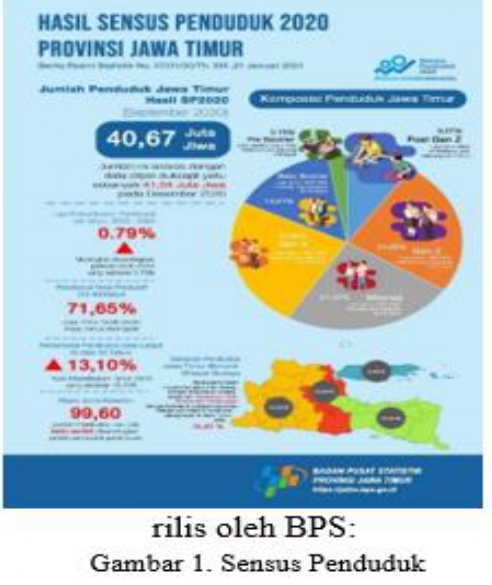Work-life Balance terhadap Turnover Intention melalui Kompensasi sebagai Variabel Intervening
##plugins.themes.academic_pro.article.main##
Abstract
This study aims to realize the effect of work-life balance on turnover intention and compensation as a mediating variable in Generation Z workers in Malang City. The method used in this research is a quantitative approach with descriptive analysis. The sample uses non probability sampling, namely saturated samples or census. The number of samples in this research are generation Z workers in Malang City as many as 100 workers. In the data collection process, the method used is a questionnaire. The data was tested using SmartPLS. The results of this research found that work-life balance has no effect on turnover intention, compensation has a positive effect on turnover intention, work-life balance has a positive effect on compensation, and compensation has no effect in mediating work-life balance turnover intention in Generation Z workers in Malang City.
Keywords: Work-life Balance, Turnover Intention, Compensation, Z Generation
##plugins.themes.academic_pro.article.details##

This work is licensed under a Creative Commons Attribution-NonCommercial 4.0 International License.
LPPM Politeknik Piksi Ganesha Indonesia
References
Geofanny, D., Pantouw, J., Tatimu, V., Rumawas, W., Administrasi, J. I., & Bisnis, A. (2022). Pengaruh Stres Kerja dan Worklife Balance Terhadap Turnover Intention Karyawan PT. Mahagatra Sinar Karya Manado (Vol. 3, Issue 1).
Greenhaus, J. H., Collins, K. M., & Shaw, J. D. (2003). The relation between work–family balance and quality of life. Journal of Vocational Behavior, 63(3), 510–531. https://doi.org/10.1016/S0001-8791(02)00042-8
Hafid, M., & Prasetio, A. P. (2017). Pengaruh Work-Life Balance Terhadap Turnover Intention (Studi Pada Karyawan Divisi Food & Beverage Hotel Indonesia Kempinski Jakarta). 14(3). www.stembi.ac.id
Halimah, T. N. (2016). Pengaruh Job Insecurity, Kepuasan Kerja, dan Lingkungan Kerja Terhadap Turnover Intention Pramuniaga di Galael Supermarket (Studi Kasus pada Galael Superindo Kota Semarang). Journal of Management, 2(2).
Idulsafitri, R. M. (2018). Keterikatan Kerja dalam Konteks Psikologi Industri/Organisasi. Andi Offset.
Isabel Sánchez-Hernández, M. , G.-L. Ó. R. , B.-M. M. , & T.-J. J. L. (2019). Work-life balance in great companies and pending issues for engaging new generations at work. International Journal of Environmental Research and Public Health, 16(24).
Kuncoro, W. (2012). ABSTRAKSI PENGARUH SISTEM REMUNERASI, KEPUASAN KERJA, KOMITMEN ORGANISASIONAL TERHADAP TURNOVER INTENTION.
Nurhasanah, L. & O. (2021). Pengaruh Kompensasi, Komitmen Organisasi dan Kepuasan Kerja Terhadap Turnover intention Pada PT. Bukit Angkasa Makmur Bengkulu. Jurnal Entrepreneur Dan Manajemen Sains, 2(2).
Prayoga, R. A. , & L. T. (2022). Strategi pengembangan kualitas sdm generasi millenial & generasi Z dalam menghadapi persaingan global era 5.0. In Prosiding Seminar Nasional Manajemen, 1(1), 37–40.
Purba, M. Y., & Ruslan, S. (2020). INFLUENCE COMPENSATION, CAREER DEVELOPMENT AND JOB SATISFACTION TO TURNOVER INTENTION. 1(4). https://doi.org/10.38035/DIJEFA
Rachmawati, D. (2019). Proceeding Indonesia Career Center Network Summit IV e-Welcoming Gen Z in Job World (Selamat Datang Generasi Z di dunia kerja). http://ejournals.unmul.ac.id/index.php/ICCN/article/download/2721/1944
Rivai, V. (2009). Manajemen Sumber Daya Manusia untuk Perusahaan Dari Teori Ke Praktik. . Raja Grafindo Persada.
Sandy, F. B. (2019). PENGARUH KOMPENSASI TERHADAP TURNOVER INTENTION YANG DIMEDIASI OLEH ORGANIZATIONAL COMMITMENT KARYAWAN PT IDX. In MEI (Vol. 16, Issue 1).
Simamora, H. (2004). Manajemen Sumber Daya Manusia. Aditya Media.
Simamora, H. (2015). Manajemen Sumber Daya Manusia Edisi ke-5. Sekolah Tinggi Ilmu Ekonomi YKPN.
Sugiyono. (2013). Metode Penelitian Kuantitatif, Kualitatif, dan R&D. Alfabeta.
Swasto, B. (2011). Manajemen Sumber Daya Manusia. UB Press.
Wirawan. (2015). Manajemen Sumber Daya Manusia Indonesia. PT Raja Grafindo Persada.

